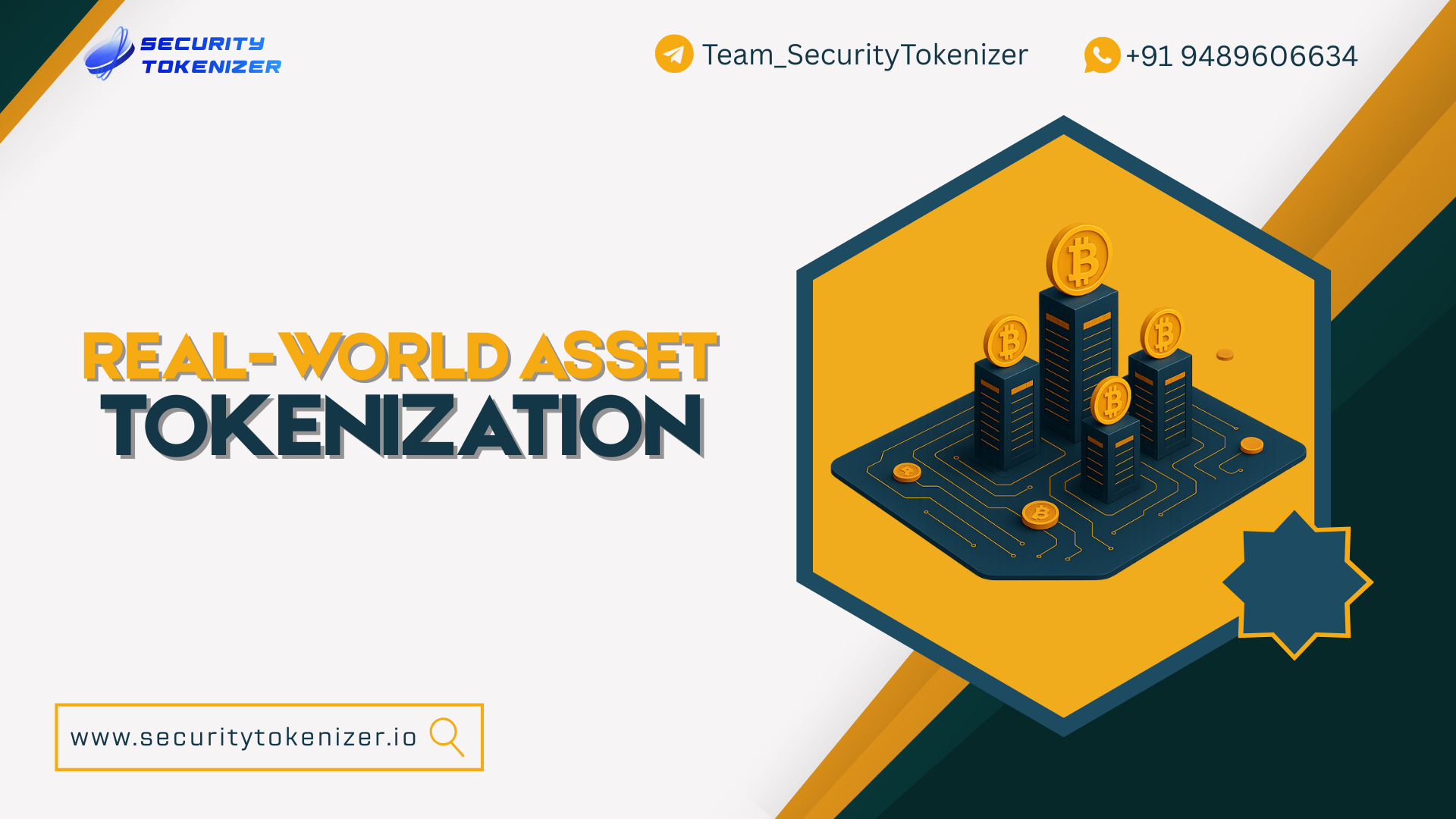Investment landscapes are shifting dramatically as traditional asset classes undergo digital transformation. Real estate properties, fine art, commodities, and even intellectual property are being converted into blockchain-based tokens, creating opportunities that were previously impossible for most investors.
Real-world asset tokenization represents more than technological innovation; it's a fundamental restructuring of how ownership, liquidity, and investment access work in modern markets. For strategic investors, understanding this transformation isn't optional; it's essential for capitalizing on emerging opportunities while traditional markets evolve.
Understanding Real-World Asset Tokenization
Real-world asset tokenization converts physical or traditional financial assets into digital tokens on blockchain networks. Each token represents fractional ownership of the underlying asset, enabling investors to buy, sell, and trade portions of previously illiquid investments.
This process transforms illiquid assets like commercial real estate, private equity, or rare collectibles into liquid, tradable securities that can be accessed by global investors 24/7.
Key Components of Tokenized Assets
Digital Ownership Certificates: Blockchain tokens serve as immutable proof of ownership, eliminating the need for traditional documentation and reducing fraud risks.
Fractional Investment Opportunities: High-value assets can be divided into smaller, affordable investment units, democratizing access to premium investment classes.
Smart Contract Automation: Automated dividend distributions, voting rights, and compliance management reduce administrative costs and improve investor experience.
Strategic Investment Advantages
Improved Liquidity Solutions
Traditional alternative investments often require long holding periods with limited exit opportunities. Real-world asset tokenization creates secondary markets where investors can trade ownership stakes without waiting for complete asset sales or lengthy redemption processes.
Commercial real estate investments that previously required 5-7 year commitments now offer daily trading liquidity through tokenized representations.
Geographic Diversification
Tokenization eliminates geographic barriers that historically limited investment opportunities. Investors can now access premium real estate markets, international commodities, or foreign private equity opportunities without establishing a local presence or navigating complex international investment structures.
Lower Investment Minimums
Premium investment opportunities traditionally requiring million-dollar minimums become accessible through fractional tokenization. Investors can build diversified portfolios across asset classes that were previously exclusive to ultra-high-net-worth individuals and institutional investors.
Asset Classes Leading Tokenization Adoption
Real Estate Investment
Commercial and residential real estate tokenization enables fractional ownership of premium properties worldwide. Investors receive proportional rental income and appreciation potential without property management responsibilities or geographic limitations.
Market Impact: Real estate tokenization platforms have processed over $2.8 billion in transactions, with average investment minimums dropping from $1 million to $10,000.
Fine Art and Collectibles
High-value artwork, rare wine collections, and luxury goods are being tokenized to provide fractional ownership opportunities. These previously illiquid assets now offer investment access and potential returns through digital marketplaces.
Private Equity and Commodities
Traditional private markets with lengthy lock-up periods are exploring tokenization to provide enhanced liquidity and broader investor access while maintaining professional management structures. Precious metals, agricultural products, and energy resources benefit from improved price transparency and reduced storage costs.
Regulatory Framework and Compliance
Securities Regulation Compliance
Real-world asset tokenization operates within existing securities regulations, requiring proper registration, disclosure, and compliance procedures. Professional tokenization services ensure adherence to SEC requirements and international regulatory standards.
Investor Protection Measures
Tokenized assets maintain traditional investor protections, including due diligence requirements, financial reporting, and regulatory oversight, while adding blockchain transparency and immutable record-keeping.
Risk Management in Tokenized Assets
Technology Risk Assessment
Blockchain infrastructure and smart contract security require thorough evaluation. Professional tokenization services implement comprehensive security audits and insurance coverage to protect investor interests.
Market Liquidity Considerations
While tokenization improves liquidity compared to traditional alternatives, secondary market depth varies by asset class and platform adoption. Strategic investors should evaluate liquidity profiles before committing capital.
Regulatory Evolution Impact
Changing regulations may affect tokenized asset markets. Staying informed about regulatory developments and partnering with compliant platforms helps mitigate regulatory risks.
Security Tokenizer's Professional Approach
Security Tokenizer delivers comprehensive real-world asset tokenization services that combine technical expertise with regulatory compliance and market best practices. Our platform enables asset owners to tokenize valuable assets while providing investors with secure, compliant access to previously inaccessible investment opportunities.
Our end-to-end services include asset evaluation, legal structuring, smart contract development, regulatory compliance, and ongoing asset management, ensuring successful tokenization projects that protect all stakeholders.
Strategic Investment Framework
Portfolio Allocation Strategies
Strategic investors typically allocate 5-15% of portfolios to tokenized assets, treating them as alternative investments with enhanced liquidity characteristics. This allocation provides diversification benefits while maintaining overall portfolio balance.
Due Diligence Requirements
Tokenized asset investment requires traditional due diligence plus technology assessment. Evaluate underlying asset quality, platform security, regulatory compliance, and management team expertise before investing.
Long-Term Market Evolution
Real-world asset tokenization represents early-stage market development with significant growth potential. Strategic investors position for long-term market evolution while managing short-term volatility and regulatory uncertainty.
Tokenization is transforming investment markets, opening new opportunities for investors who understand the technology, regulatory frameworks, and market forces behind it.
Ready to explore tokenized asset investment opportunities?




